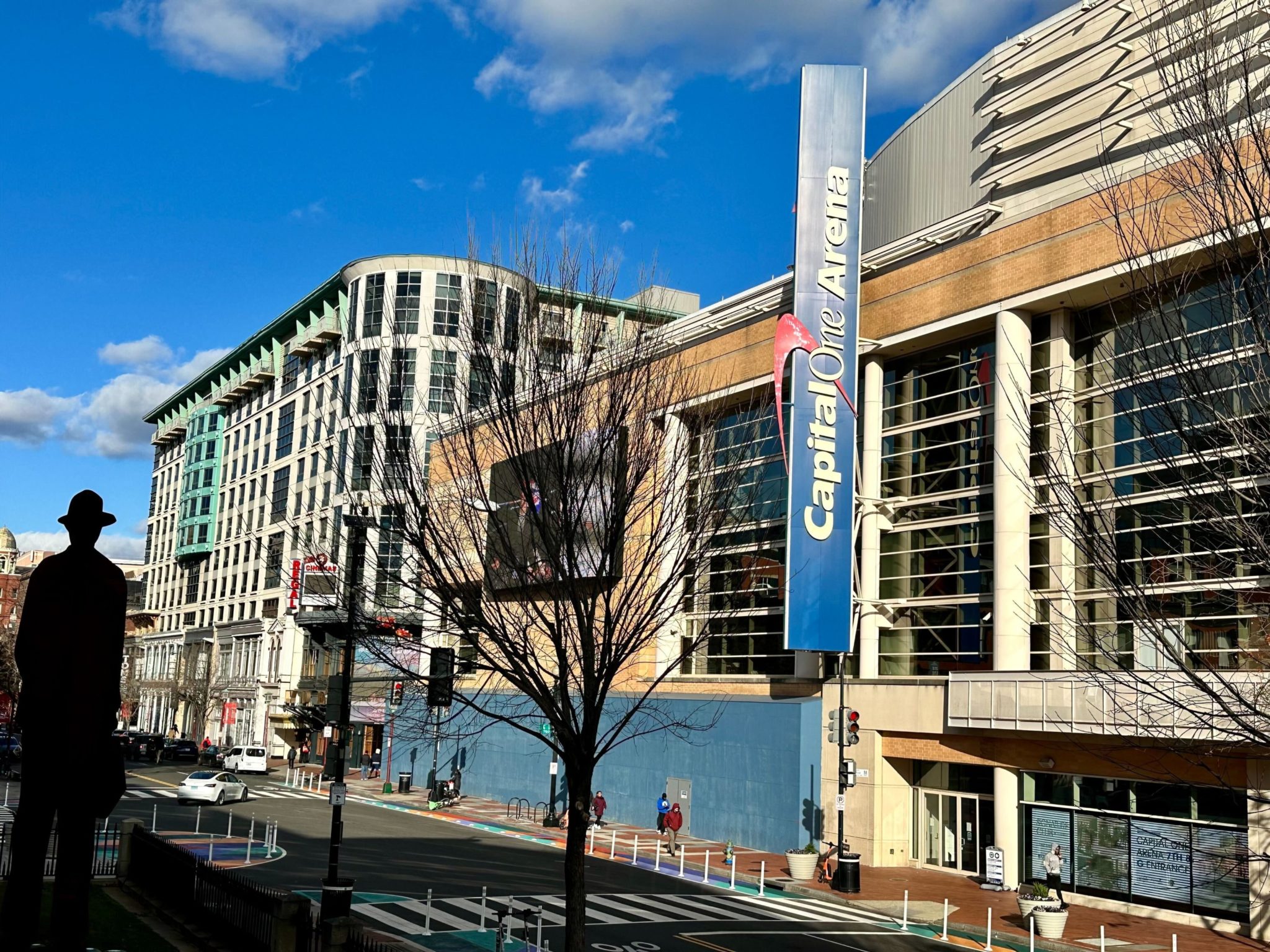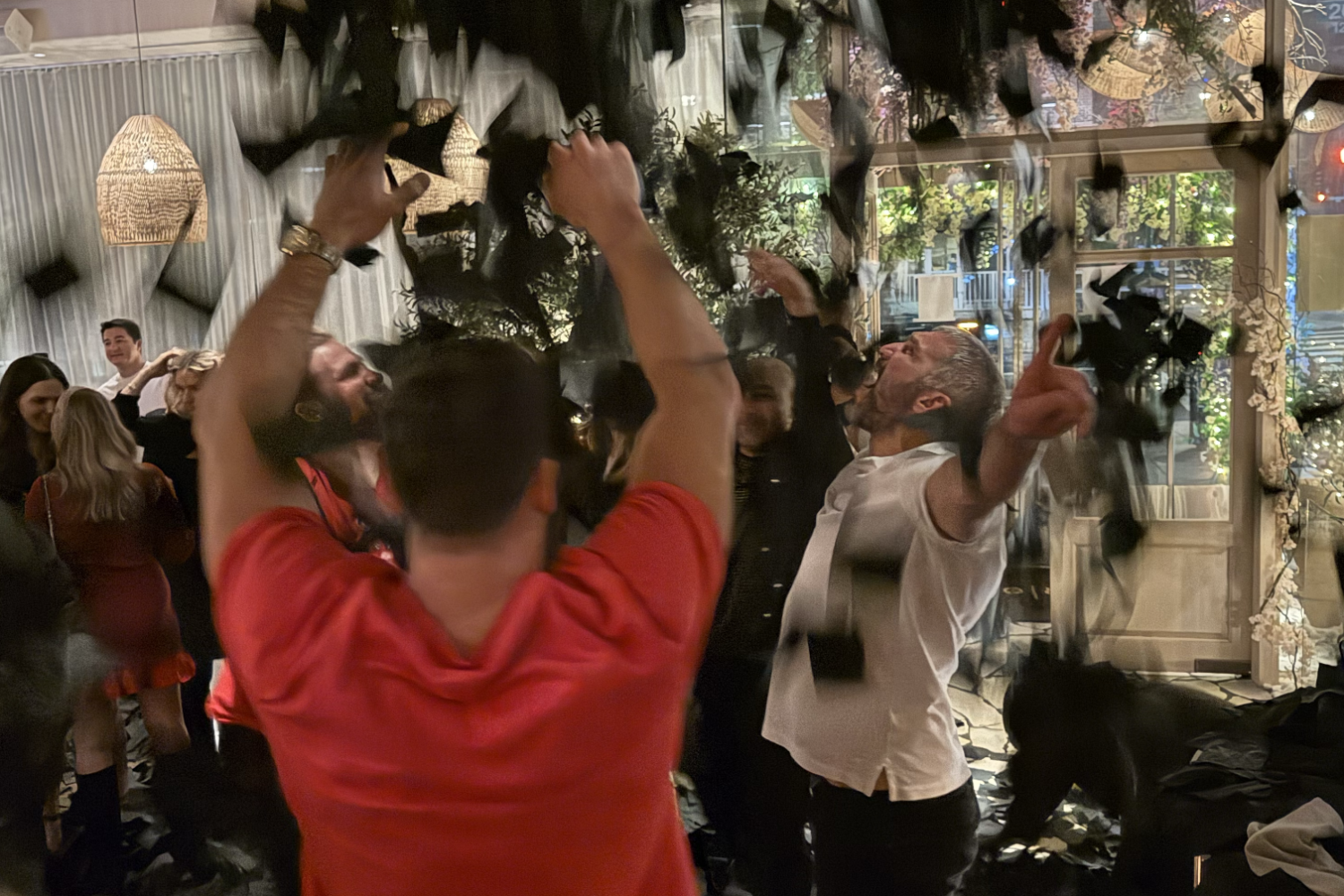Last week, Ted Leonsis shocked the Washington region by announcing an agreement to uproot the Capitals and Wizards from their longtime home at Capital One Arena and relocate them to a new stadium in Potomac Yard. Though the deal is non-binding—and DC officials are still working to retain the teams—local business leaders, political figures, and sports fans have spent the past week dissecting the deal’s impact on sports fans and the city. In a statement, former DC Mayor Anthony Williams called it a “huge blow to our downtown recovery.” On ESPN’s “Pardon the Interruption,” former Washington Post sportswriter Michael Wilbon decried the move on behalf of Wizards fans: “What does that say to your fan base that has been loyal despite zero years of contention for that franchise for a championship?”
Who—or what—is to blame for the apparently imminent departure of DC’s NBA and NHL teams from the nation’s capital? Here’s a look at the leading suspects:
1. Ted Leonsis
During the darkness of the Dan Snyder years, it was easy to view Leonsis as the antithesis of the loathsome sports owner who was destroying the local NFL franchise. Indeed, Leonsis never missed an opportunity to cultivate his image as a civic-minded sportsman who put his city above his bank account. As longtime local sportswriter Thom Loverro pointed out, Leonsis used his 2010 book, The Business of Happiness: 6 Secrets to Extraordinary Success in Work and Life, to extol former Caps and Wizards owner Abe Pollin—a man who built Capital One Arena with about $200 million of his own money, and at a time when local business leaders were reluctant to invest in downtown DC—while presenting himself as the champion of his benevolent legacy.
“Abe was a remarkable man who built and sustained both the Washington Wizards and the Caps, and in the mid-1990s, he had taken on a very significant financial commitment, building a new arena in downtown D.C.,” as Leonsis put it in his book. “Mr. Pollin had moved his teams from Landover, Maryland, into the heart of the District because he thought it would be better for the city he loved. He financed this himself, in an act of civic generosity that is increasingly uncommon among sports team owners, who often rely on municipalities —taxpayers — to build their new arenas or stadiums.”
“Owning the Washington Capitals is not simply being the proprietor of a business,” he continued. “It is, as Abe Pollin said, a public trust.”
Today, if you wipe the mist from your eyes, you can see the real Ted Leonsis: a typical team owner, mostly concerned with maximizing the financial windfall he can squeeze out of taxpayers.
2. Glenn Youngkin
The $1.35 billion in taxpayer cash that would go towards a new Caps and Wizards arena in Virginia represents “the largest-ever public subsidy for a project of its kind,” according to The Washington Post. Somebody had to lead the effort to fork over that much of the people’s cash; according to reports, the Virginia governor, a longtime Leonsis pal, was a driving force. Was the potential future Republican presidential candidate looking for a high-profile political win after his party lost control of the Virginia statehouse in November? Did his philosophical commitment to small government and free market capitalism prevent him from embracing corporate welfare? Do you enjoy rhetorical questions?
3. Muriel Bowser
While local sports fans can be forgiven for buying into Leonsis’s sweet talk—I’m guilty of this myself!—it’s astonishing that DC officials appear to have been caught so flat-footed by his ambitions. As Axios reported, Mayor Bowser last January was privately waving off concerns that the two franchises might relocate. “Oh, Ted’s not going anywhere,” the mayor said at the time.
In a recent Washington Post op-ed, the writer Matthew Yglesias noted that as Virginia officials were quietly putting together their plan to lure the Caps and Wizards, the Bowser administration was wrestling with a number of other issues: a possible deal for a new Commanders stadium in DC, a troubling rise in violent crime, growing numbers of public school students not showing up to class, and problems in DC’s 911 system. “It’s hard to look at things such as the collapse of the city’s 911 system and soaring absenteeism in city schools and not feel that the mayor has taken her eye off the ball,” Yglesias wrote. “Months of intensive focus on a misguided football scheme, even as one of downtown’s major remaining pillars slips away to Virginia, isn’t the most important example of that, but it is arguably the most glaring and obvious.”
4. John Falcicchio
As the Washington City Paper notes, the former Deputy Mayor was Bowser’s most trusted adviser, someone who helped get things done, and a key voice in discussions with Leonsis’s Monumental Sports—until, uh, he wasn’t.
5. The Nationals and Commanders
On top of financial profiteering and political blundering, another force was working to pull the Caps and Wizards from the city: bad luck. As it happened, Leonsis was seeking public funds from the city just as DC’s two other major pro-sports franchises had their hands out as well. The Washington Nationals struck an agreement in October for the city to provide up to $22 million in renovations to Nationals Park. Meanwhile, Mayor Bowser has been working to attract the Washington Commanders back into DC with the possibility of a new taxpayer-subsidized stadium. The unusual convergence of four different sports franchises asking for public funds at the same time surely complicated life inside the mayor’s office, and likely contributed to its miscalculations.
6. Covid
The recent decline of the area around the Capital One Arena has likely made it easier for Leonsis to decamp. Much of this slide is rooted in the pernicious virus that brought the country to a halt in 2020—and sparked the work-from-home revolution that has left DC’s downtown emptier and less lively. As of this past May, foot traffic was less than half of what it was before the pandemic. As Gerren Price, the president and CEO of the DowntownDC Business Improvement District, said at the time, “[T]here’s just not as many people in their offices by day, and that has a real impact on what it feels like on the street, and that has a real impact for some of our businesses that have relied on that base of people to support them.”
7. Crime
It’s also the case that the city is suffering an upsurge in crime. According to the Metropolitan Police Department, total violent crime on a year-to-date basis increased 39 percent from 2022 to 2023. And, as The Post reported, the city has witnessed more homicides—264 so far this year—than in any year since 1997. “Things just don’t look great right now,” as writer Mike D. Sykes II put it on USA Today’s For The Win site. “You can understand why anyone would pack up and run away in the face of all that.” Still, Sykes II doesn’t believe that this increase in violence is what ultimately motivated Leonsis to reach his deal with Virginia: “But don’t get it twisted,” he wrote. “Crime would just be a convenient excuse. Cash is the reason Leonsis is leaving the city.”
8. Dan Snyder
The bad news and worse vibes around the former Commanders owner reportedly helped torpedo a bipartisan, Youngkin-supported bill in the Virginia statehouse that would have funded a new stadium for the NFL franchise. Had that bill passed, would the state have been as eager to spend billions more on the Capitals and Wizards? It’s doubtful.
9. Gallery Place street performers
As The Washington Post reported, Leonsis has been “particularly bothered by buskers playing loud music outside his office.” If only soundproofing construction materials existed, and a man worth an estimated $2.8 billion could afford to install them at his place of work!
10. R. M. T. Hunter
In the 1840s, this pro-slavery Congressman led the successful effort to take Alexandria away from DC and give it back to Virginia; without his work, the Capitals and Wizards would simply be moving across town.


![Luke 008[2]-1 - Washingtonian](https://www.washingtonian.com/wp-content/uploads/2017/10/Luke-0082-1-e1509126354184.jpg)

















